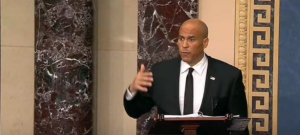Coastal Judges Play Hold-Away From The Fifth Circuit

Fights over boards are usually not new. Lengthy earlier than nationwide injunctions flew from Amarillo and San Francisco, the manager department sought to manage have been authorized challenges may very well be filed. Maybe essentially the most distinguished such latest instance was Guantanamo Bay. The Bush Administration detained enemy combatants on the navy base to keep away from federal habeas jurisdiction. That plan, nevertheless, didn’t work out. In a sequence of circumstances resulting in Boumedienne v. Bush (2008), the federal courts within the District of Columbia asserted jurisdiction over Guantanamo Bay.
Nevertheless, the Bush Administration did safe a venue victory in one other case: Rumsfeld v. Padilla (2004). On the time, the Fourth Circuit was thought-about essentially the most conservative circuit within the nation. And in that case, the Bush Administration detained Jose Padilla, a declared “enemy combatant,” in a South Carolina navy jail. A habeas go well with was introduced within the Southern District of New York. The Supreme Court docket held that the go well with was not correct in New York. Somewhat, “for core habeas petitions difficult current bodily confinement, jurisdiction lies in just one district: the district of confinement.”
That previous brings us to the current. In two distinguished circumstances, the Trump Administration has taken actions to maintain authorized challenges throughout the Fifth Circuit. And in each circumstances, judges on the East Coast have performed keep-away from the Fifth Circuit.
The primary case is Trump v. J.G.G. On this case, aliens have been held at a facility in Texas. They have been then loaded on a aircraft certain for El Salvador. Across the similar time, Decide Boasberg within the District of Columbia ordered this operation to be halted instantly. But, there was a threshold subject: was the federal court docket within the District of Columbia the right court docket to even convey this go well with? Final time I checked, the federal courts in Texas stay operational–true, they’re far much less busy now then they have been earlier than the inauguration. The apparent response is that the ACLU didn’t need this case anyplace close to the conservative Fifth Circuit. However typically a strategic alternative can backfire.
The Solicitor Normal’s emergency software in J.G.G. explains that Texas, and never D.C., was the one discussion board the place a habeas declare might have been introduced. The SG additional argues {that a} declare underneath the Administrative Process Act (APA) just isn’t correct underneath the Alien Enemies Act (AEA). (That was too many acronyms in a single sentence.)
Habeas claims, nevertheless, should be introduced solely within the district of detention— and that’s not the place respondents sued. See Rumsfeld v. Padilla, 542 U.S. 426, 435 (2004). Respondents ought to have introduced habeas claims within the Southern District of Texas. But they filed within the District of Columbia. Respondents could not leverage the APA to assault the President’s train of authority underneath the Alien Enemies Act in a discussion board of their selecting. See Ludecke, 335 U.S. at 164. The APA is a very poor match on condition that APA evaluate extends solely to “company motion” and to not motion “of the President” just like the Proclamation. Franklin v. Massachusetts, 505 U.S. 788, 796 (1992); see App., infra, 80a (Walker, J., dissenting).
Considerably perplexingly, Decide Henderson’s controlling opinion declined to resolve the venue/habeas/APA query:
The choices under disregarded the issue. Certainly, no majority of D.C. Circuit panel rejected the habeas argument. Solely Decide Millett concluded that respondents’ “claims are usually not habeas claims and don’t sound in habeas.” App., infra, 63a. In contrast, Decide Walker, in dissent, opined that respondents’ claims sound in habeas and should be introduced in Texas. Id. at 78a. However Decide Henderson—the deciding vote—merely “[a]ssum[ed] habeas reduction is now not sought,” then “assume[d]” that respondents’ APA claims “represent claims they will assert thereunder.” Id. at 10a. That assumes away the decisive subject: the AEA doesn’t let respondents refashion habeas claims into APA claims.
There may be an excellent deeper downside right here. The plaintiffs initially introduced a habeas declare, however the choose nudged them to shift to an APA declare. Take into account the federal government’s recitation of the posture:
Hours after respondents filed their grievance, and with out ready to listen to from the federal government, the district court docket granted respondents’ movement for a TRO and ordered candidates to not “take away any of the person Plaintiffs from the US for 14 days absent additional Order of the Court docket.” App., infra, 147a (3/15/25 Second Minute Order). The federal government moved to remain the order and filed an attraction. Later that day, and with out ready for a short from the federal government, the district court docket held a listening to on respondents’ movement for sophistication certification. App., infra, 147a (3/15/25 Third Minute Order). At that listening to, the federal government’s counsel defined that certification of a nationwide class was not applicable as a result of (amongst different causes) respondents’ claims sound in habeas and accordingly should be introduced within the district (in Texas) through which they’re confined. Id. at 165a; see Rumsfeld v. Padilla, 542 U.S. 426, 435 (2004). In response, the district court docket inquired whether or not respondents may need to dismiss their habeas claims. App., infra, 169a. Respondents’ counsel defined that “if the Court docket felt prefer it wanted us to dismiss the habeas [claim] with the intention to subject a classwide TRO, then we’re ready to do this.” Ibid. The court docket granted respondents’ “movement to dismiss their habeas rely” with out prejudice. Ibid. The court docket then said with out elaboration that “class certification is warranted underneath Federal Rule of Civil Process 23(a) and 23(b)(2).” Ibid.
Right here is the related change on 169a:
THE COURT: Do you need to dismiss your habeas declare, Mr. Gelernt? I do not know. It is actually not your major declare. You could have different causes for together with it.
MR. GELERNT: Your Honor, I feel if the Court docket felt prefer it wanted us to dismiss the habeas with the intention to subject a class-wide TRO, then we’re ready to do this. We actually do not feel like we’d like it. However, I feel the Court docket might simply maintain it in abeyance. I imply, I feel that it is very clear that in the event you needn’t convey it in habeas, you do not have to and you may convey it — in different phrases, I feel Your Honor couldn’t have been clearer in IRLR. There are a variety of circumstances that say that. In any other case, just about each case can be introduced in habeas.
THE COURT: Once more, I feel this can be a fairly shut query, however I’ve bought to rule on it with basically 40 minutes’ discover on condition that this was first raised by the federal government in our listening to. And I am not blaming the federal government in any respect as a result of they have not had a possibility to temporary it. And in order temporary as my analysis has been at this time period, I do not suppose that venue bars certification. I’ll, for readability, I’ll grant the plaintiffs’ — first grant the plaintiffs’ movement to dismiss their habeas rely. In order that rely is dismissed with out prejudice at this level.
However I do discover that class certification is warranted underneath Federal Rule of Civil Process 23(a) and 23(b)(2). So I’ll certify a category, and the category might be — let’s speak in regards to the definition. The plaintiffs ask for all noncitizens who have been, are, or might be topic to the AEA proclamation and its implementation.
The transcript additionally references venue with regard to certification at 165a of the appendix.
To be clear, the District Court docket invited the plaintiffs to drop their habeas declare to give attention to the APA declare. I am going to put my cynical hat on for a second. Decide Boasberg could have acknowledged the venue issues with the habeas claims, or noticed issues with certifying a category with habeas. The choose urged the Plaintiffs to restyle their case, and the consequence of that order was that the case might stay within the District of Columbia, and {that a} nationwide class may very well be licensed to convey an APA declare.
I’ve seen this form of transfer earlier than. In the International Emoluments Clause litigation, the plaintiffs solely introduced an official capability declare in opposition to President Trump. Seth Barrett Tillman and I argued in an amicus temporary that an official capability declare was not correct, because the go well with challenged alleged private actions taken by Trump. Decide Peter Messitte acknowledged our temporary throughout oral argument, and mainly requested the events to additionally convey a person capability declare. Unsurprisingly, the plaintiffs dutifully amended their grievance. Right here, an inexpensive observer might see the choose because the plaintiffs’ co-counsel. The transcript within the Emoluments Clauses case intently resembled Decide Boasberg’s colloquy.
Litigants, and never judges, ought to be litigating the case. When a choose tells events easy methods to litigate their case, the choose turns into a celebration, not a impartial Justice of the Peace. It is true the case was fast-moving. And if the choose didn’t transfer shortly, the aliens could have been transported in another country. But when the Plaintiffs didn’t convey their declare correctly, the treatment is to dismiss the case and ask the plaintiffs to be restyle. The Supreme Court docket has acknowledged that aliens who have been deported in error may very well be returned. Judges have an obligation to keep up their very own jurisdiction, however solely in a declare that’s correctly filed. I feel Decide Boasberg’s try to “assist” the plaintiffs reformulate their go well with, and preserve it in his courtroom, was a transparent abuse of discretion, if not an abuse of the judicial energy.
Furthermore, on the deserves, I stay unconvinced that judges can certify a category motion on the fly throughout a TRO listening to. I criticized this observe throughout the early days of the journey ban litigation.
There’s a second case the place a coastal choose has performed keep-away from the Fifth Circuit. Mahmoud Khalil, a resident of New York, was briefly detained at an immigration facility in New Jersey earlier than he was transferred to Louisiana. Counsel for Khalil introduced go well with within the Southern District of New York. Decide Jesse Furman ordered that Khalil couldn’t be eliminated, transferred the case to New Jersey, moderately than Louisiana. Once more, Khalil was by no means detained in New York, and it isn’t clear why a New York choose even had jurisdiction to subject any ruling. Worse nonetheless, there was no foundation to switch the case to New Jersey, apart from the truth that the defendant was briefly detained there.
I am going to put my cynical hat on for an additional second. Everybody realizes that the Fifth Circuit is a extra favorable discussion board than the Second or Third Circuits. So Decide Furman made a judgment that Khalil’s rights can be “higher” protected by federal judges in New Jersey than Louisiana. I’ve learn Decide Furman’s order, and there’s nothing in regards to the Fifth Circuit, however I strongly suspect this concern was lurking within the background.
For many who could not bear in mind, right here is how Justice Thomas described Decide Furman’s ruling within the census case:
The District Court docket’s prolonged opinion pointed to different details that, in its view, supported a discovering of pretext. 351 F. Supp. 3d, at 567–572, 660–664 (discussing the statements, e-mails, acts, and omissions of quite a few folks concerned within the course of). I don’t deny {that a} choose pre-disposed to mistrust the Secretary or the administration might prepare these details on a corkboard and—with a jar of pins and a spool of string—create an attention grabbing conspiracy net. Cf. id., at 662 (inferring “from the varied methods through which [the Secretary] and his aides acted like folks with one thing to cover that they did have one thing to cover”).
Thomas faulted Decide Furman for not affording the manager department the “presumption of regularity.” And I feel Decide Furman likewise didn’t afford the Fifth Circuit a “presumption of judicial regularity.”
On Friday, the choose in New Jersey held a listening to. I’ve not but seen a transcript, however the Occasions provided this account:
On Friday in Newark, Baher Azmy, a lawyer for Mr. Khalil and authorized director of the Heart for Constitutional Rights, argued in court docket that transferring the case to Louisiana would set a precedent for different activists to be moved with out authorized justification, which he referred to as “Kafkaesque.”
The federal government’s case in opposition to Mr. Khalil was undertaken “with the intention to retaliate in opposition to constitutionally protected speech,” Mr. Azmy stated.
However a lawyer for the federal government, August E. Flentje, stated it “made no good sense” for the case to be heard in New Jersey when Mr. Khalil had been arrested in New York, asserting that “the case belongs in Louisiana.”
Let’s be very clear right here what’s going on: federal judges in Louisiana can’t be trusted to guard Khalil from “Kafkaesque” hearings. Right here, Khalil just isn’t being transferred to Guantanamo Bay; he’s being transferred to the Gulf of America. However throughout the Amtrak Hall, Louisiana could as effectively be a “black website.”







